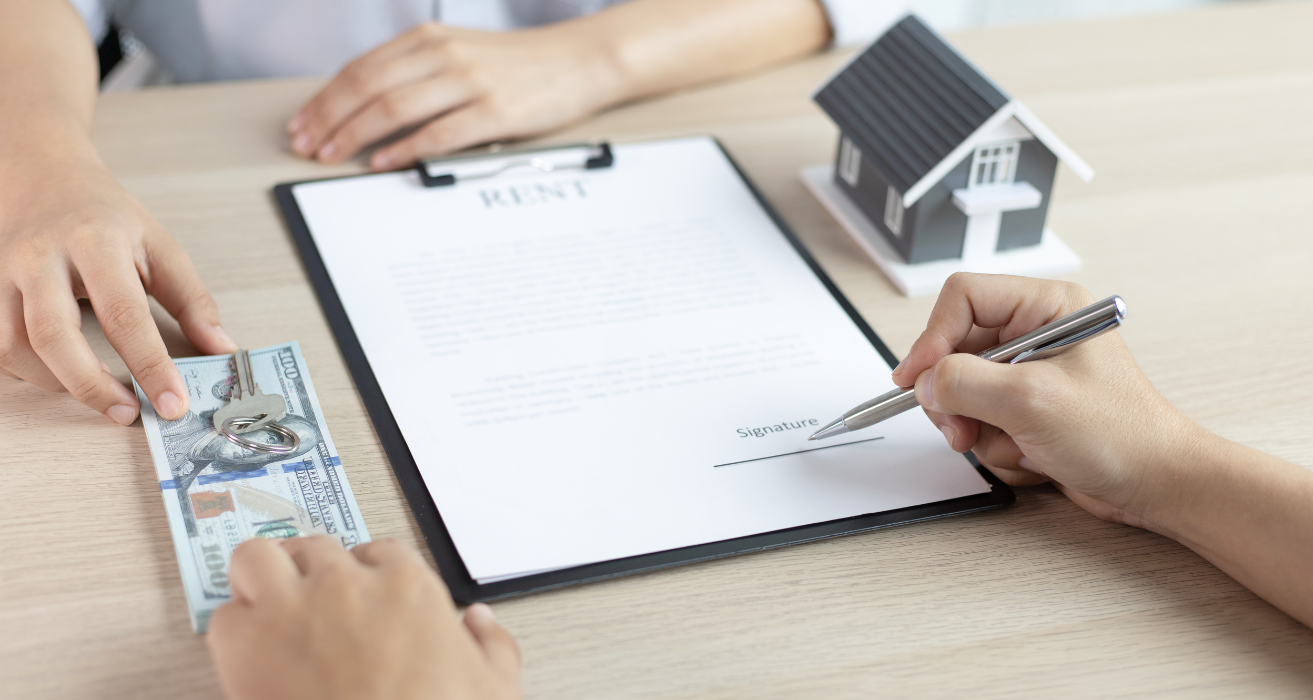Why Proof of Funds Is Required in Home Buying?
.avif)
Buying a home is exciting, but it comes with hurdles, and proof of funds (POF) is one of the biggest early checkpoints.
Heads up: If you can't show you have the money to close, sellers and lenders might not even consider your offer.
The good news? Proof of funds is easier to secure than you might think. We'll walk you through what it is, why it matters, and how to get it ready—fast.
Let's dive in.
Key Takeaways:
- Proof of funds (POF) shows you have the financial ability to complete a home purchase.
- Common POF documents include bank statements, investment account summaries, and certified letters.
- Cash buyers and financed buyers may both need POF.
- Strong POF can make your offer more competitive.
- Preparation helps avoid delays or rejected offers.
What Is Proof of Funds?
Proof of Funds (POF) is a set of documents that shows you have the money available to purchase a property.
Examples of acceptable POF include:
- Recent bank statements (showing available cash balance)
- Savings account summaries
- Investment account statements
- Letter from a bank officer (certifying your account balance)
- Cashier's checks or money market accounts
Pro Tip: Always provide official documents. Screenshots without account numbers or institution branding usually won't cut it.
Why Proof of Funds Is So Important?
Here’s why sellers and lenders ask for POF before moving forward:
- Sellers need assurance that you can cover the down payment and closing costs.
- Lenders require verification to approve your mortgage.
- Competitive offers stand out when they include strong financial backing.
- Delays are minimized if funds are verified upfront.
Who Needs Proof of Funds?
Almost every buyer.
- Cash Buyers: You must show you have the full purchase price ready.
- Mortgage Buyers: You need to show enough for the down payment, closing costs, and any reserves required by your lender.
Heads up: If you're combining multiple sources (like personal savings plus gift funds), each source needs its own POF documentation.
How to Prepare Your Proof of Funds?
To make sure you’re ready to move quickly, here’s what to do:
- Request recent statements from your bank and/or investment firms.
- Get a verification letter from your financial institution, if possible.
- Organize your documents to highlight accessible funds (avoid showing liabilities).
- Blur sensitive information if submitting digitally - keep the account number partially hidden.
Pro Tip: If you're using gift funds, get a "gift letter" signed and include it with your POF package.
What Should Your Proof of Funds Show?
Lenders and sellers typically look for:
- Your name matches your loan application.
- Liquid (easily accessible) assets.
- No unexplained large deposits (unless documented).
- Funds available at least 60 days before closing.
Mistakes to Avoid with Proof of Funds
Don’t let these trip you up:
- Relying on unverified screenshots
- Mixing personal and business accounts without explanation
- Showing statements full of debt or obligations
- Providing outdated documents
If your POF doesn't look clean and credible, it could delay your closing or, worse, kill the deal.
Helpful Resources for Homebuyers
- Be My Neighbor Home Loans - Licensed mortgage experts ready to guide you. (NMLS #1743790)
- realpha - A commission-free platform that helps you buy your next home smarter.
Both platforms are committed to empowering buyers with transparency and confidence.
Conclusion: Ready to Power Up Your Homebuying Journey?
Proof of funds isn’t just a formality, it’s your ticket to serious homebuying success.
If you’re ready to move forward:
- Get pre-qualified with Be My Neighbor—your trusted mortgage partner (NMLS #1743790).
- Explore commission-free homebuying with realpha—and keep more money in your pocket.
Your dream home deserves a solid foundation, and that foundation starts with proof of funds.
Disclosure: Be My Neighbor Home Loans is a licensed mortgage lender (NMLS #1743790). Realpha is a real estate platform offering commission-free home buying opportunities. This article is for informational purposes only and does not constitute financial or mortgage advice. Always consult with licensed professionals regarding your specific situation.
FAQs
What qualifies as proof of funds when buying a home?
Acceptable proof includes bank statements, investment account summaries, a letter from a financial institution, or certified checks showing you have sufficient funds available.
Can I use a gift as proof of funds?
Yes, but you’ll need a signed "gift letter" from the donor confirming it’s not a loan and doesn’t need to be repaid.
How recent should my proof of funds be?
Documents typically should be from the last 30 days. Some lenders or sellers may require even more up-to-date information closer to closing.
Do I need proof of funds if I'm getting a mortgage?
Yes. Even if financing most of the purchase, you’ll need to show you have funds available for your down payment, closing costs, and possibly reserves.
What happens if I can't provide proof of funds?
Your offer might be rejected or your mortgage process delayed. It's crucial to prepare early and have documents ready when you start shopping for a home.





.png)
.png)
.png)
.png)
.png)
.png)








.jpg)
.jpg)
.jpg)
.jpg)
.jpg)
.jpg)
.jpg)
.jpg)
.jpg)
.png)








.png)
.jpg)
.jpg)
%20(1).jpg)
.jpg)
.jpg)

.jpg)
.jpg)




-min.png)
.avif)
-min.png)
-min.png)
.jpg)
.avif)

-min.png)

.avif)
.avif)






-min.png)
-min.png)
-min.png)

-min.png)

-min-p-1080%20(1)%20(1).jpg)
-min.png)
-min.png)
.avif)
.avif)
.avif)
.avif)
.avif)
.avif)
.avif)
.avif)
.avif)
.avif)
.avif)
.avif)
.avif)
.avif)
.avif)

.avif)
.avif)
.avif)
.avif)
.avif)
.avif)
.avif)
.avif)
.avif)



